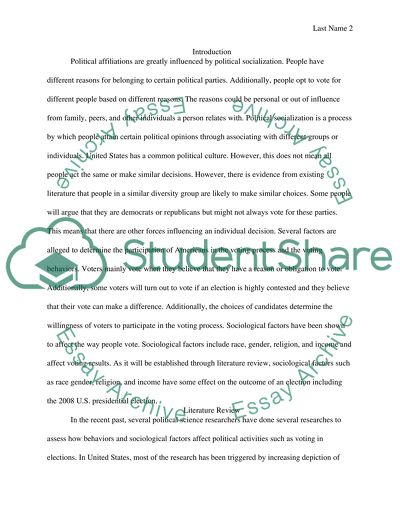Cite this document
(“What sociological factors affect voting Research Paper”, n.d.)
Retrieved from https://studentshare.org/sociology/1402913-what-sociological-factors-affect-voting
Retrieved from https://studentshare.org/sociology/1402913-what-sociological-factors-affect-voting
(What Sociological Factors Affect Voting Research Paper)
https://studentshare.org/sociology/1402913-what-sociological-factors-affect-voting.
https://studentshare.org/sociology/1402913-what-sociological-factors-affect-voting.
“What Sociological Factors Affect Voting Research Paper”, n.d. https://studentshare.org/sociology/1402913-what-sociological-factors-affect-voting.


